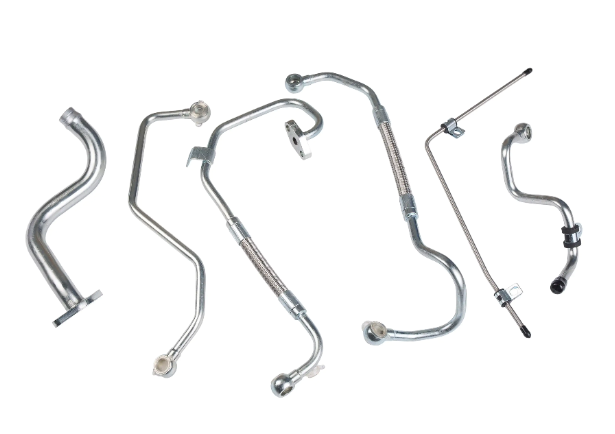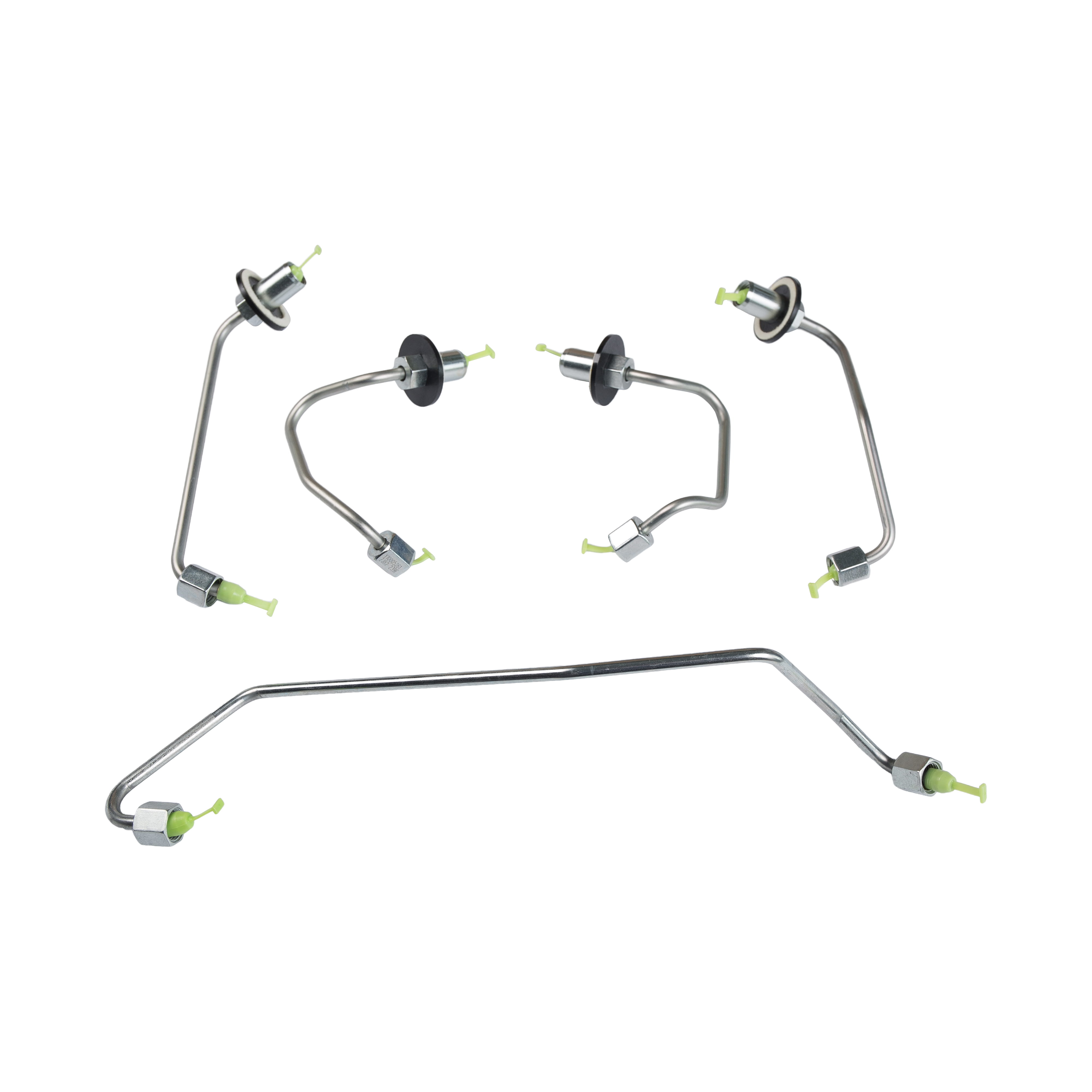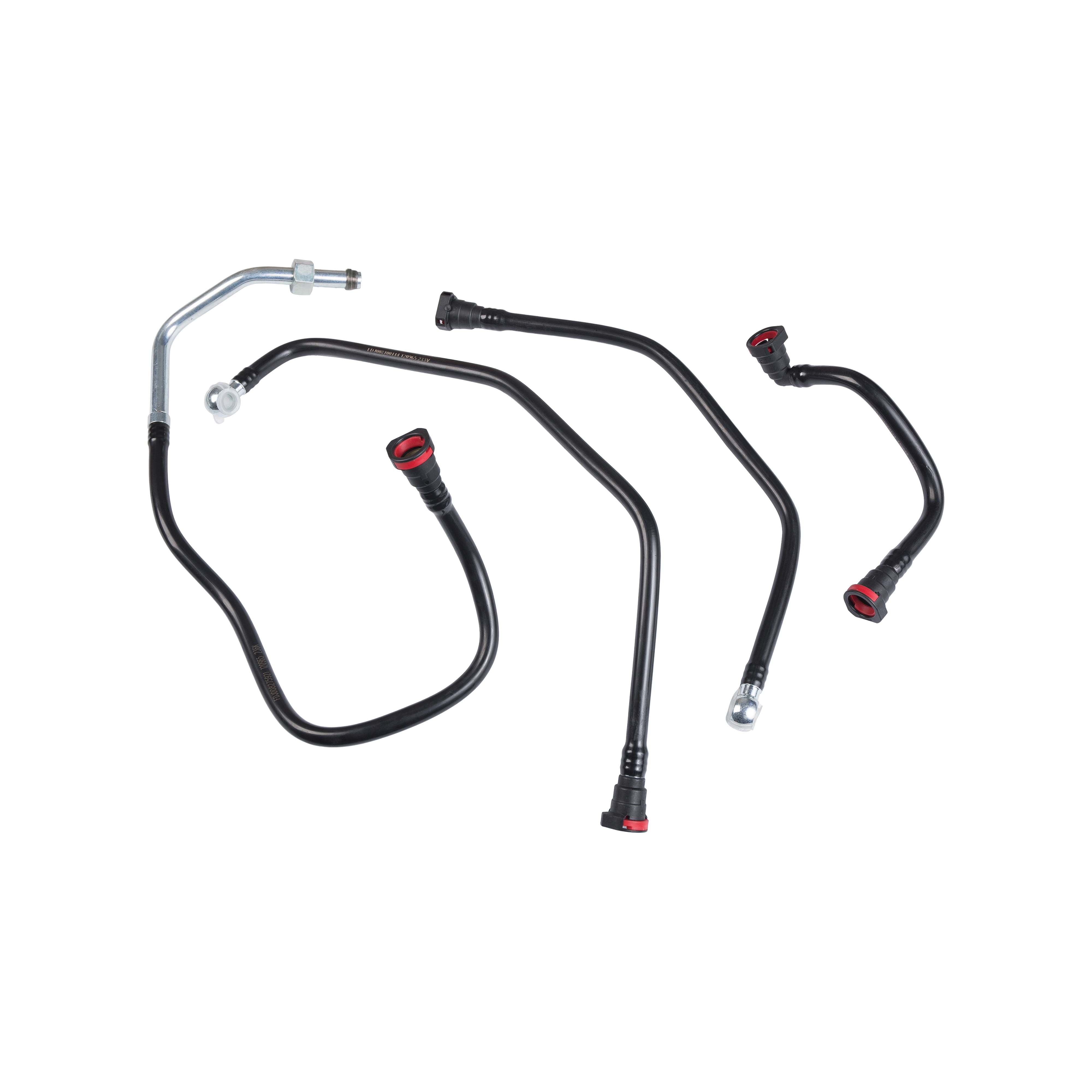Introduction to 304 Stainless Steel Corrugated Low Pressure Oil Pipes
304 stainless steel corrugated low pressure oil pipes are widely used in industrial and mechanical applications due to their excellent durability and chemical resistance. The corrugated structure provides flexibility while maintaining strength, making it ideal for conveying oil and other fluids in systems subjected to vibration, bending, or thermal expansion. One of the most critical performance factors of these pipes is their corrosion resistance, which ensures long-term reliability and safety in demanding environments.
Material Composition and Its Role in Corrosion Resistance
304 stainless steel is an austenitic steel alloy composed primarily of iron, chromium (18–20%), and nickel (8–10.5%). Chromium forms a thin, passive oxide layer on the surface of the steel, which protects it from oxidation and corrosive substances. Nickel enhances corrosion resistance in acidic and alkaline environments and improves ductility and toughness. This combination allows 304 stainless steel to resist corrosion in most industrial conditions, including exposure to oil, water, and mild chemicals.
Comparison with Other Materials
| Material | Corrosion Resistance | Strength | Flexibility |
| 304 Stainless Steel | Excellent | High | Moderate |
| Carbon Steel | Low | High | Low |
| Aluminum | Moderate | Moderate | High |
Factors Affecting Corrosion Resistance
While 304 stainless steel has excellent inherent corrosion resistance, several factors influence its performance in practical applications. Environmental conditions, such as temperature, humidity, and exposure to salts or acids, can impact the protective oxide layer. Mechanical stress, bending, or surface scratches may also compromise corrosion resistance if the passive layer is damaged. Understanding these factors helps in designing and maintaining oil pipe systems for optimal longevity.
Impact of Temperature and Pressure
304 stainless steel performs well under low to moderate temperatures commonly encountered in oil transfer applications. However, prolonged exposure to high temperatures or thermal cycling may reduce corrosion resistance. The low-pressure design of corrugated oil pipes ensures that the structural integrity is maintained without over-stressing the material, which could otherwise lead to localized corrosion or stress corrosion cracking.
Maintenance Practices to Enhance Corrosion Resistance
Regular maintenance is crucial to preserve the corrosion resistance of 304 stainless steel corrugated oil pipes. Cleaning the pipe surfaces to remove accumulated oil, dirt, or chemical residues prevents corrosion initiation. Periodic inspection for scratches, dents, or other damage helps identify areas that may require protective coatings or repair. Proper installation and avoidance of galvanic contact with dissimilar metals also reduce corrosion risks.
Recommended Maintenance Checklist
- Inspect for surface damage, cracks, or pitting
- Clean the pipe with mild detergents or approved solvents
- Avoid contact with carbon steel or other reactive metals
- Monitor operating pressure and temperature within safe limits
- Replace worn or damaged pipes promptly to prevent leaks
Industrial Applications and Corrosion Resistance Requirements
304 stainless steel corrugated low pressure oil pipes are widely used in industries such as chemical processing, automotive, and food-grade oil transfer. In chemical plants, the pipes resist corrosion from mild acids, oils, and lubricants. In automotive or machinery applications, they withstand exposure to engine oils and hydraulic fluids while maintaining flexibility for vibration absorption. The high corrosion resistance ensures safety, reduces maintenance costs, and prolongs service life.
Case Study: Automotive Oil Lines
In vehicles, 304 stainless steel corrugated oil pipes are used to transfer engine and transmission oil under low pressure. The combination of flexibility and corrosion resistance ensures reliable performance over thousands of operating hours, even when exposed to temperature fluctuations, road salts, and environmental contaminants. This application highlights the importance of material choice in preventing oil leaks and system failures.
Conclusion: Reliability of 304 Stainless Steel Corrugated Oil Pipes
The corrosion resistance of 304 stainless steel corrugated low pressure oil pipes makes them a preferred choice in industrial, automotive, and chemical applications. Their material composition, combined with proper maintenance, installation, and operational practices, ensures long-lasting durability and safety. By understanding the factors influencing corrosion and adhering to recommended care practices, engineers and operators can maximize the performance and lifespan of these essential oil transfer components.


 English
English Español
Español русский
русский












